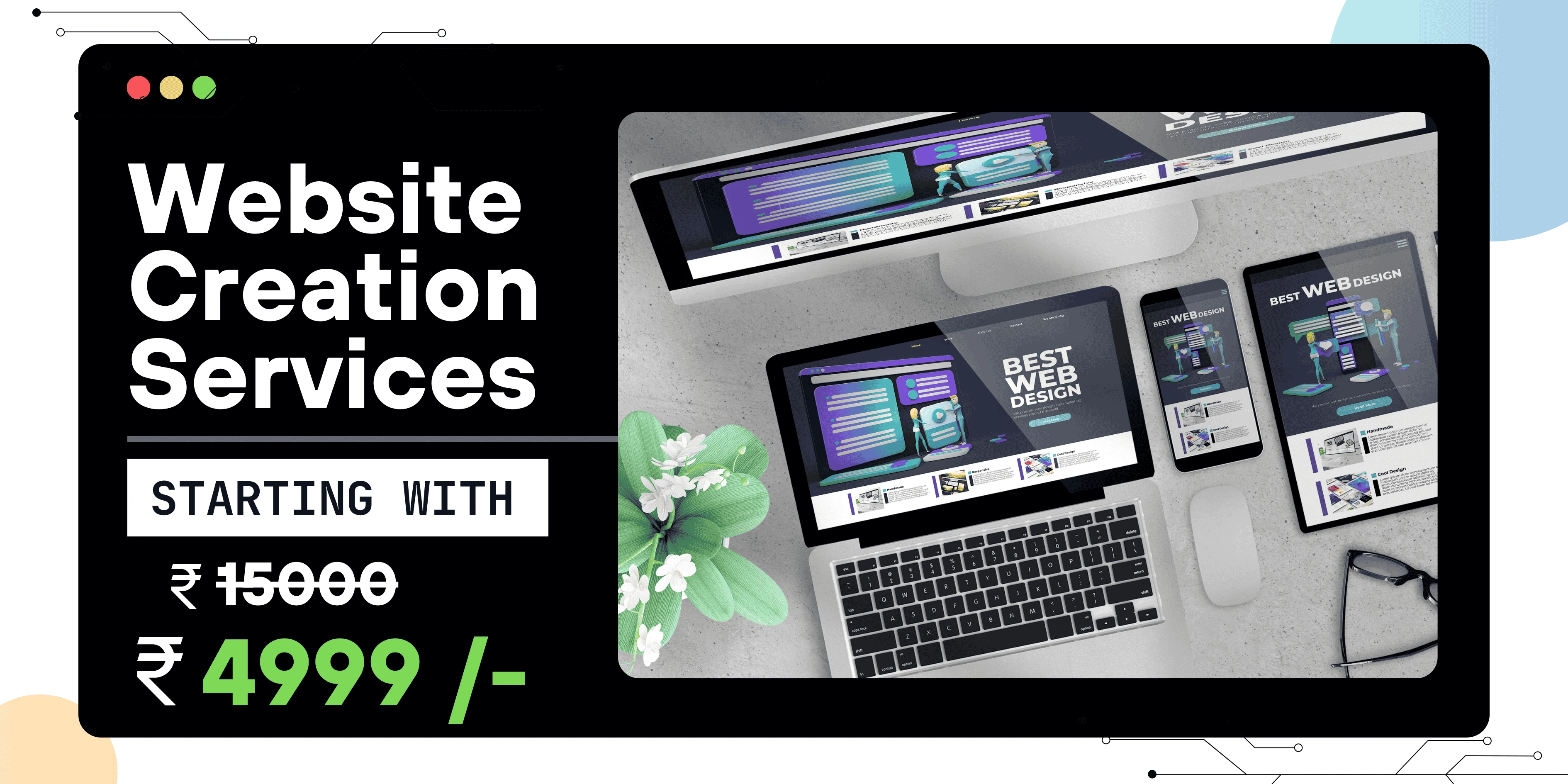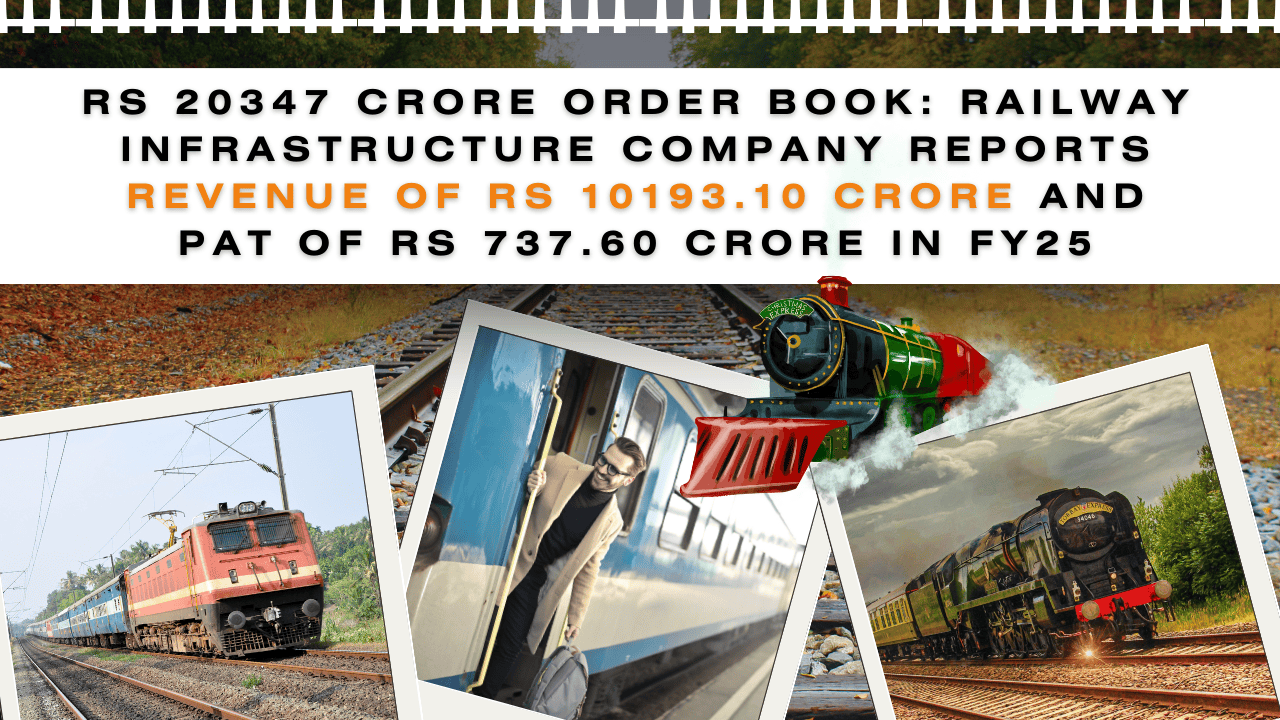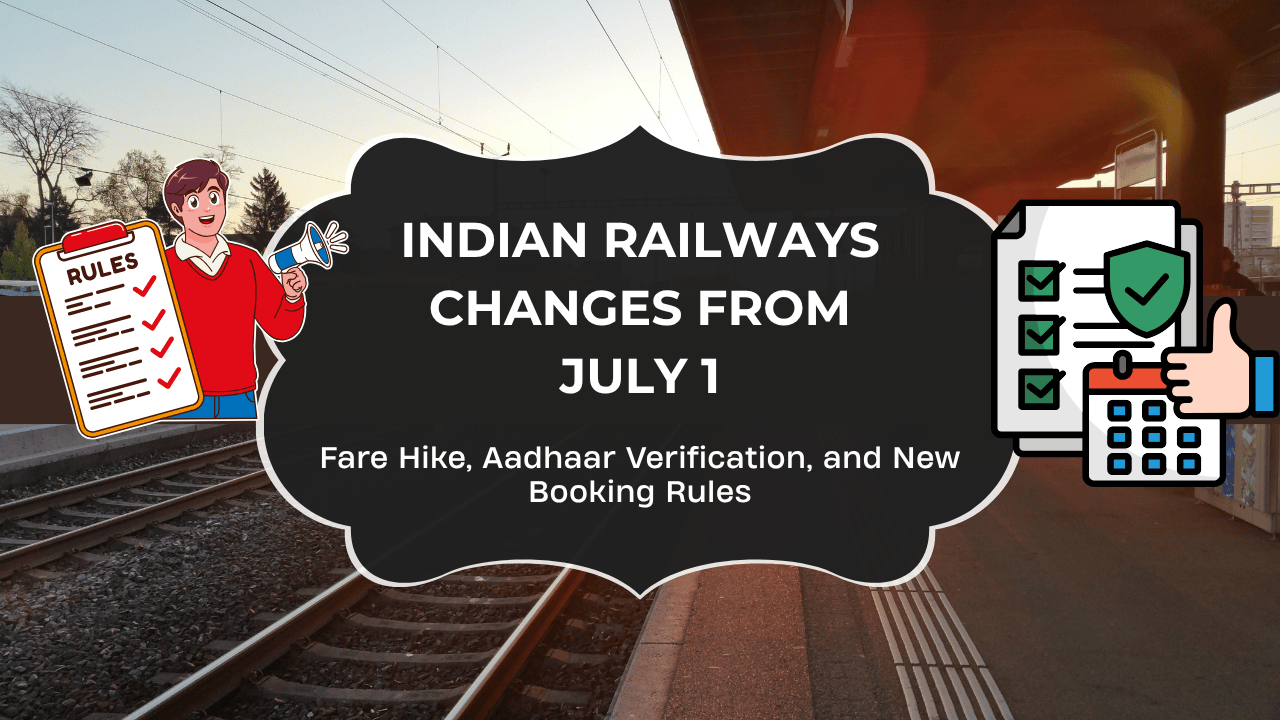Listen to This Article
In a strong testament to India's expanding infrastructure landscape, a leading railway infrastructure company has announced an impressive performance for the financial year 2024-25 (FY25). The company reported a revenue of ₹10,193.10 crore and a Profit After Tax (PAT) of ₹737.60 crore, further strengthened by a robust order book worth ₹20,347 crore.
Strong Financial Performance in FY25
The revenue figures mark a significant milestone for the company, showcasing sustained demand and successful execution across multiple railway infrastructure projects. With a PAT of ₹737.60 crore, the company has delivered solid profitability, underlining its operational efficiency and financial discipline.
This performance highlights the growing opportunities in India’s railway modernization drive, including track electrification, signaling systems, station redevelopment, and high-speed rail projects.
Robust Order Book of ₹20,347 Crore
A standout figure in the report is the order book valued at ₹20,347 crore, which signals strong future prospects. These pending projects span several states and involve public-private partnerships, EPC contracts, and government-commissioned works. The size of the order book ensures revenue visibility for the upcoming fiscal years and reflects the trust placed in the company by various stakeholders.
Key Drivers Behind the Growth
Several factors have contributed to this strong financial performance:
- Government Push for Railway Modernization: The Indian government’s continuous investment in infrastructure, particularly in railways under schemes like PM Gati Shakti and National Rail Plan, has created a favorable business environment.
- Execution Efficiency: Timely project execution and adherence to safety and quality standards have helped the company earn repeat contracts and maintain profitability.
- Technological Integration: Embracing digital project management tools and advanced construction technologies has streamlined operations and reduced overhead costs
Sector Outlook
India’s railway infrastructure sector is poised for exponential growth, backed by increasing freight demand, passenger mobility, and a focus on sustainability through electrification and modernization. The company’s strong order book and healthy financials position it well to tap into these opportunities.
Industry analysts believe that such performance is a clear indicator of the company’s pivotal role in transforming India's transportation ecosystem. The focus will now shift towards maintaining margins, securing new projects, and diversifying into metro rail and high-speed corridors.
Pros (Advantages):
- Highly Informative
- Contains all key financial metrics (Order Book, Revenue, PAT, FY).
- Useful for journalists, investors, or industry analysts.
- Contains all key financial metrics (Order Book, Revenue, PAT, FY).
- Keyword-Rich
- Includes powerful SEO terms like railway infrastructure, order book, revenue, PAT, FY25.
- Includes powerful SEO terms like railway infrastructure, order book, revenue, PAT, FY25.
- Trust-Building
- Specific numbers add authenticity and build credibility.
- Demonstrates robust performance figures likely to appeal to discerning business audiences.
- Specific numbers add authenticity and build credibility.
- Professional Tone
- Suitable for press releases, financial blogs, or business journalism.
- Suitable for press releases, financial blogs, or business journalism.
Cons (Disadvantages):
- Too Long for SEO/Meta Title
- Ideal meta title length is 50–60 characters. This one is ~137 characters — it will be truncated in search results.
- Ideal meta title length is 50–60 characters. This one is ~137 characters — it will be truncated in search results.
- Low Engagement Appeal
- Lacks emotional or curiosity-driven triggers. It might not capture attention in social media or headline feeds.
- Lacks emotional or curiosity-driven triggers. It might not capture attention in social media or headline feeds.
- Complex and Dense
- May overwhelm casual readers or non-financial audiences with too many figures in one line.
- May overwhelm casual readers or non-financial audiences with too many figures in one line.
- No Clear Branding or Entity Mention
- Doesn't name the company directly. If it's a well-known brand (e.g., IRCON, RVNL), including the name could boost engagement and SEO.
- Doesn't name the company directly. If it's a well-known brand (e.g., IRCON, RVNL), including the name could boost engagement and SEO.
If a railway infrastructure company is reporting such strong financials — an order book of ₹20,347 crore, revenue of ₹10,193.10 crore, and PAT of ₹737.60 crore in FY25 — it signals several future growth opportunities and strategic implications.
Here’s what else such a performance can lead to in the future:
1. Stronger Market Position
- A large order book ensures revenue visibility for the next few years.
- The company may become a preferred vendor for future railway or government infrastructure contracts.
2. Expansion into New Sectors
- With healthy cash flows and credibility, it may diversify into:
- Metro rail
- High-speed rail (e.g., bullet trains)
- Urban transit (e.g., mono rail, electric bus depots)
- International railway or infrastructure tenders
- Metro rail
3. Stock Market Valuation Boost
- Consistent performance and a high order backlog may result in:
- Rising investor confidence
- Improved stock valuation (if it’s listed)
- Potential inclusion in indices like Nifty Infra or BSE 500
- Rising investor confidence
4. Technology and Innovation Investments
- Surplus profits can be invested in:
- AI-driven project management
- Smart signaling and automation
- Faster track laying and electrification tools
- AI-driven project management
5. Global Bidding Opportunities
- Solid domestic performance could position it to bid on international projects in Asia, Africa, or the Middle East where Indian infra firms are increasingly gaining contracts.
6. Partnerships and Joint Ventures
- The strong order book and execution capability might attract:
- Foreign direct investment (FDI)
- Joint ventures with global rail tech companies
- Foreign direct investment (FDI)
7. Stronger Negotiating Power
- More revenue means stronger balance sheets, which leads to:
- Better terms from banks/financiers
- More leverage in raw material procurement or labor contracts
- Better terms from banks/financiers
8. Government Collaboration
- With such scale, the company could be consulted or involved in policy framing, railway modernization planning, or public-private partnership (PPP) models.
This performance is not just a financial milestone — it's a strategic platform. If managed wisely, the company can scale operations, innovate, expand globally, and even shape India’s future transportation infrastructure.
Understanding the Financials
Order Book – ₹20,347 Crore
- This is the total value of pending projects the company has secured but not yet completed.
- A strong order book reflects:
- High demand for its services
- Long-term revenue visibility
- A pipeline of assured work, which is crucial for investors and analysts
- High demand for its services
Revenue – ₹10,193.10 Crore
- Indicates the company successfully executed a large portion of its projects during FY25.
- High revenue also implies efficient project management and strong execution capacity.
Profit After Tax (PAT) – ₹737.60 Crore
- This represents the net profit remaining after deducting all expenses, taxes, and depreciation.
- A PAT margin of ~7.2% on revenue is very healthy for infrastructure firms, which usually operate on tight margins.
Sectoral Insights: Railway Infrastructure in India
1. Massive Government Push
- The Indian government allocated over ₹2.5 lakh crore to the Ministry of Railways in Union Budget 2024.
- Focus areas:
- Electrification of railway lines
- Semi-high-speed and bullet trains (e.g., Vande Bharat)
- Redevelopment of 1,300+ railway stations
- Electrification of railway lines
2. Privatization & PPP Opportunities
- Private investment is being encouraged in:
- Freight corridors
- Railway stations (under PPP model)
- Rolling stock manufacturing
- Freight corridors
3. Green Railways Vision
- The company may also benefit from:
- Electrification targets (net-zero by 2030)
- Solar power installations along rail tracks
- Environmentally sustainable construction mandates
- Electrification targets (net-zero by 2030)
Strategic Future Moves for the Company
1. Geographic Expansion
- May enter underserved markets in northeast India or export expertise to developing countries like Bangladesh, Nepal, or African nations.
2. New Business Verticals
- Likely to enter new sectors like:
- Metro rail construction
- Tunneling and bridges
- Urban transportation infrastructure (e.g., electric bus terminals)
- Metro rail construction
3. IPO or Fundraising
- If not already listed, such strong financials make it an ideal IPO candidate.
- Or, it might go for private equity or debt funding to expand further.
4. Collaborations & Tech Integration
- May partner with:
- Global railway technology companies
- Software firms for AI/IoT-based track monitoring
- Global railway technology companies
- Could also invest in automation for laying tracks or overhead wires
What This Means for Investors & the Public
- Investors may see this company as a strong long-term bet, especially if it’s listed on NSE/BSE.
- Job seekers in civil engineering, railway tech, and project management might find expanding employment opportunities.
- Policymakers might consider the company as a key player for national infrastructure missions
This financial performance isn’t just a sign of growth — it's a springboard for scaling, diversification, and innovation. With India’s focus on infrastructure as a key pillar of becoming a $5 trillion economy, railway infra firms with this kind of record performance are poised to be national growth drivers.
 Unlock Your Savings Today!
Unlock Your Savings Today!
Get the best deals with unbeatable service and exclusive offers.

 Grow Your Business with Proven Digital Marketing
Grow Your Business with Proven Digital Marketing
Ready to attract more customers and outshine your competition? Our tailored digital marketing strategies help you rank higher, generate qualified leads, and build a brand people trust. Let’s take your business to the next level.
Digital Marketing Solutions in Leading Cities


 Disclaimer
Disclaimer
The views expressed by experts in this article are their own and do not necessarily reflect the opinions of any website, organization, institution, or affiliated entity. If you have any concerns regarding this article, please contact us at contact@quantamminds.com and also on WhatsApp
Frequently Asked Questions
What does an order book of ₹20,347 crore indicate for the railway infrastructure company?
An order book of ₹20,347 crore means the company has secured projects worth that amount, which are yet to be completed. It reflects strong future revenue potential, operational credibility, and a high level of trust from government or private clients. It also shows that the company has a consistent pipeline of work, ensuring business stability in the coming years.
How significant is the reported revenue of ₹10,193.10 crore in FY25?
The revenue of ₹10,193.10 crore in FY25 reflects the company’s robust ability to execute projects effectively and its solid presence in the market. It suggests that the firm successfully delivered a large number of infrastructure projects during the year and is efficiently converting its order book into revenue.
What does a PAT (Profit After Tax) of ₹737.60 crore suggest about the company’s performance?
A PAT of ₹737.60 crore indicates solid profitability. For infrastructure companies, which often operate on thin margins due to high costs and complex operations, this level of profit suggests effective cost control, successful project execution, and financial discipline.
How does this financial performance position the company for future growth?
With a strong revenue base, high profitability, and a massive order book, the company is well-positioned for future growth. It can explore new markets, bid for larger contracts (including international projects), invest in new technology, or even consider IPOs, mergers, or acquisitions to expand its footprint.
How does this reflect on the overall railway infrastructure sector in India?
This performance underscores the momentum in India’s railway infrastructure sector, driven by government investment, modernization goals, and public-private partnerships. It highlights growing opportunities for infrastructure firms in areas like track electrification, station redevelopment, and high-speed rail projects.







 Pallavi Singh on 2025-05-23
Pallavi Singh on 2025-05-23

 Ashwani Kumar
Ashwani Kumar 



